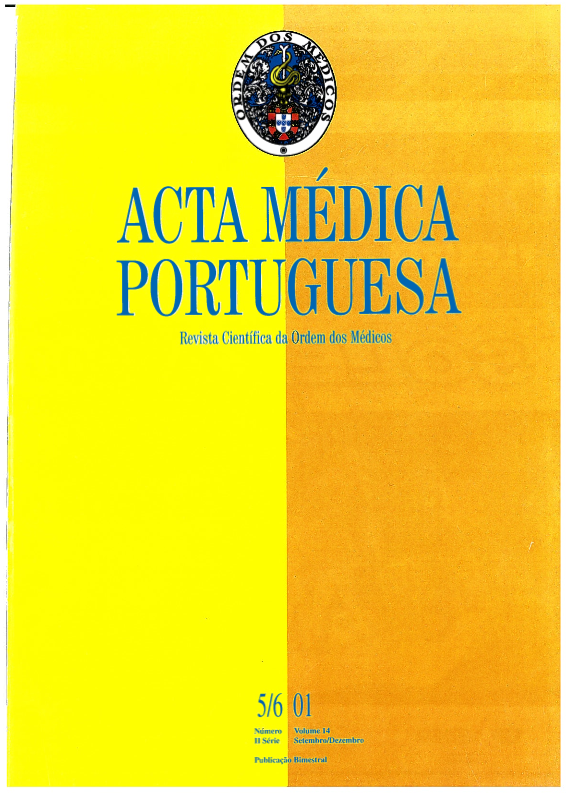Primary neoplasm of unknown origin.
DOI:
https://doi.org/10.20344/amp.1895Abstract
Cancers of unknown primary site constitute a heterogeneous group having in common their biological behaviour. We have analysed patients with cancer of unknown primary site admitted to University Hospital of Coimbra/Internal Medicine Service III from 1st January of 1992 to 30th June of 1998. The study included 26 patients corresponding to a prevalence of 2.5% malignant neoplasias; the median age of affected patients was 64 years old with a male-to-female ratio of 4.2:1. The most frequent histological type was well differentiated and moderately well differentiated adenocarcinoma, 46.1% of all cases. Three years global survival rate was 3.9%. The herein-reported prevalence is comparable to that found in recent literature, showing a good diagnostic skill. As expected, the prognosis was poor, revealing the disease's aggressiveness and the lack of efficient therapy in the majority of case.Downloads
Downloads
How to Cite
Issue
Section
License
All the articles published in the AMP are open access and comply with the requirements of funding agencies or academic institutions. The AMP is governed by the terms of the Creative Commons ‘Attribution – Non-Commercial Use - (CC-BY-NC)’ license, regarding the use by third parties.
It is the author’s responsibility to obtain approval for the reproduction of figures, tables, etc. from other publications.
Upon acceptance of an article for publication, the authors will be asked to complete the ICMJE “Copyright Liability and Copyright Sharing Statement “(http://www.actamedicaportuguesa.com/info/AMP-NormasPublicacao.pdf) and the “Declaration of Potential Conflicts of Interest” (http:// www.icmje.org/conflicts-of-interest). An e-mail will be sent to the corresponding author to acknowledge receipt of the manuscript.
After publication, the authors are authorised to make their articles available in repositories of their institutions of origin, as long as they always mention where they were published and according to the Creative Commons license.









